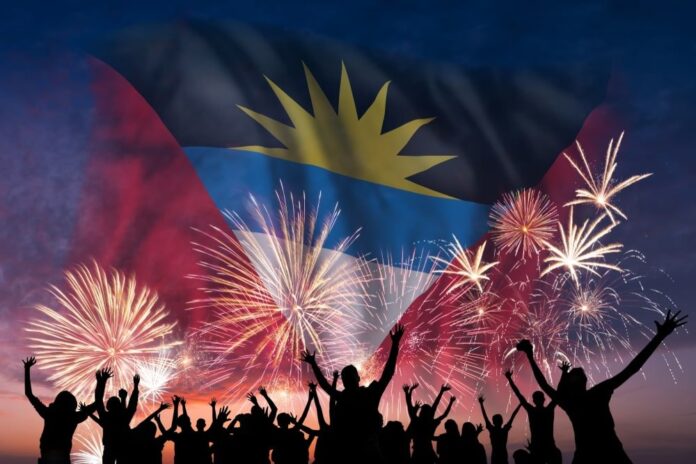This year marked 40 years since Antigua and Barbuda have been politically free from the colonization of the United Kingdom.
On Monday, November 1st, the twin-island state and its global diaspora celebrated the theme of resilience, reflection, and recovery.
Family and friends gathered at varying moments to play games, eat traditional meals, and share stories about Antigua and Barbuda’s history.
Whether or not your Ducana included raisins, we can all agree that joy and happiness were the moods of the day as the majority of the country paused to appreciate their ancestors’ hardships.
Clothing featuring national colours and designs was worn by a vast number of people. During the day, at several gatherings, indigenous music like Iron Band, Soca, and Calypso was the soundtrack in the background.
Many youngsters were educated about their forefathers’ enslavement on the cane fields, as well as the history of their national heroes. They were also enlightened on the history of Antigua and Barbuda, which sparked excitement.
Christopher Columbus discovered Antigua in 1493, according to archival evidence and historians, and named it after the Church of Santa Maria de la Antigua in Sevilla, Spain.
It was founded in 1632 by English immigrants and remained an English Colony until 1666 when the French invaded. The early occupants were overrun by the Caribs, who were once one of the most powerful peoples in the West Indies. Tobacco was first grown, but in the late 17th century, sugar proved to be more profitable.
Barbuda, the sister island, was discovered in 1678. In 1685, Queen Elizabeth gave the island to the Codrington family. The slaves who were put there learnt to live in small groups and freedom since it was never finished as a slave-breeding camp.
This is only the beginning of our narrative; a few decades later, we were colonized by the British. Today, as we reflect on our heritage, we move on from this voyage to freedom with a spirit of resilience on the path to recovery.
We are Antigua and Barbuda, and this year marks 40 years of Resilience, reflection and recovery.
